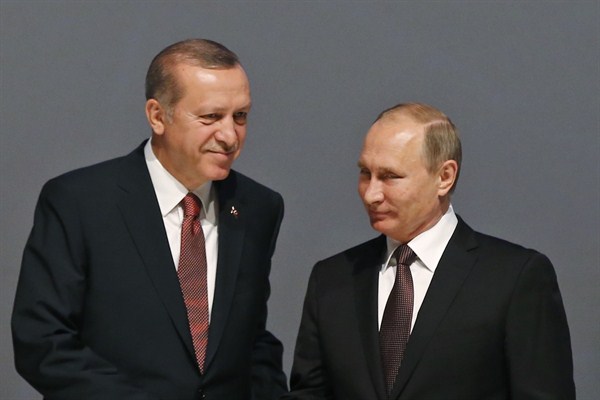For a few hours after a Turkish policeman walked into an art gallery in Ankara and shot dead Russia’s ambassador to Turkey, it was unclear how the event would affect ties between the two countries. Ambassador Andrey Karlov had come to the gallery to celebrate the opening of an exhibit of Turkish photographers, “Russia Through Turks’ Eyes,” that was intended to highlight Turkey and Russia’s strengthening relationship.
The assassination turned the exhibit into a scene of carnage, but there was no immediate sign that it would harm bilateral ties. In fact, all signs suggest that it will do the opposite, bringing the two countries closer together, at least in the short term.
And yet, behind the carefully coordinated response by Moscow and Ankara, a set of ideological and domestic realities could spell trouble for the painstakingly constructed new relationship between the two countries and their leaders, Turkish President Recep Tayip Erdogan and his Russian counterpart, Vladimir Putin.

